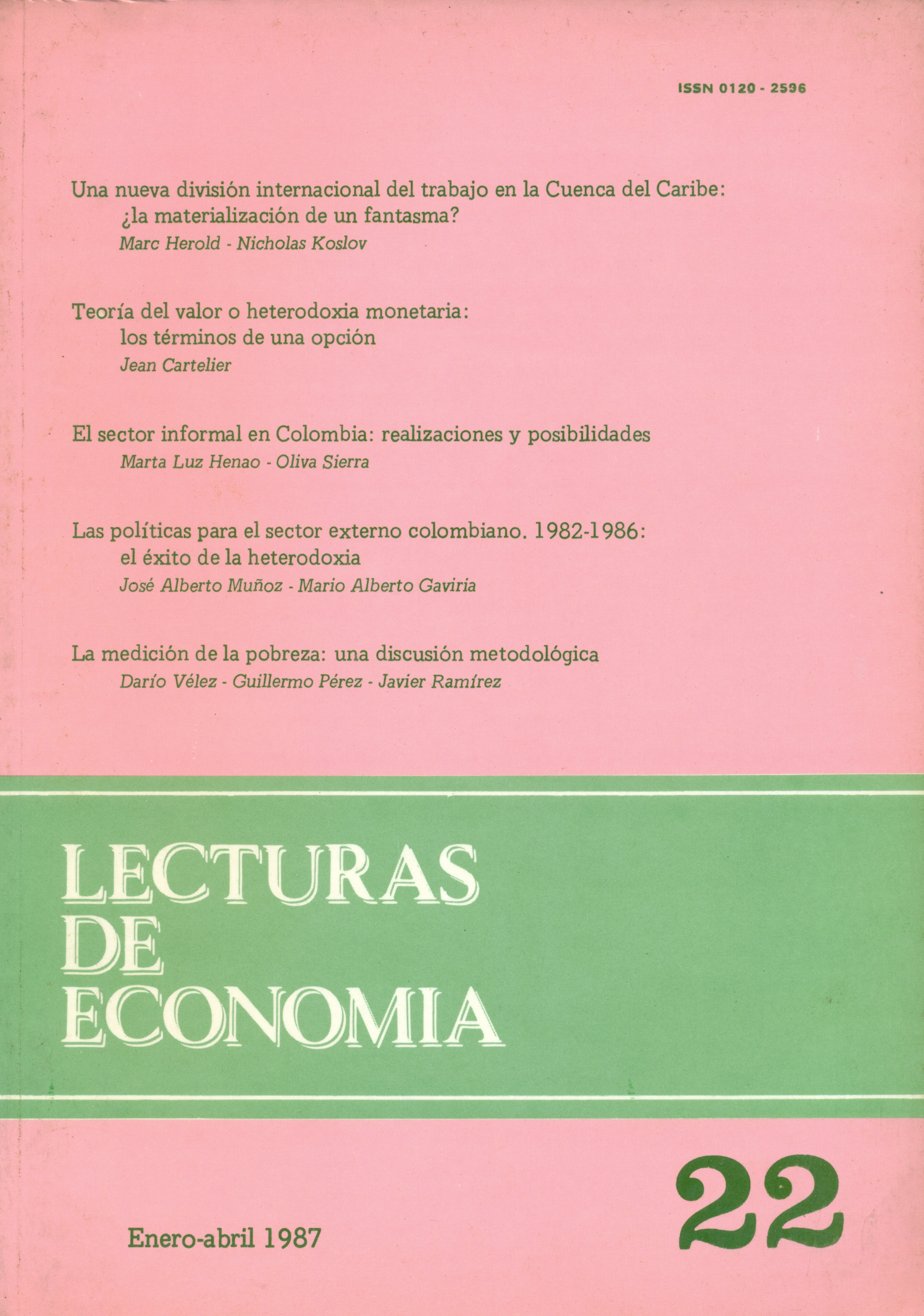Las políticas para el sector externo colombiano. 1982-1986: el éxito de la heterodoxia
DOI:
https://doi.org/10.17533/udea.le.n22a7930Abstract
• Resumen: Este ensayo evalúa, a través del análisis de la balanza de pagos, el manejo del sector externo durante el gobierno de Belisario Betancur Cuartas (1982-1986), destacando el papel de la política económica para este sector en la concepción global de los programas macroeconómicos de ese período, resaltando, además, la correspondencia entre lo planeado y lo efectivamente realizado. Se concluye que, exceptuando el relativo fracaso de la política de inversión extranjera, los resultados obtenidos reflejaron el éxito de la heterodoxia en las decisiones de política cambiaria; en efecto, se recuperó la paridad en la tasa de cambio, se obtuvo superávit en la balanza de pagos a partir de 1985 y se logró la reactivación económica, a lo cual contribuyó enormemente el comportamiento de) sector externo.
• Abstract: This paper analyses critically the management of the external sector during the years of the Betancur government (1982-1986), and relates it to broader questions of economic policy. It pays particular attention to intended and unintended effects. With the exception of foreign investment the article finds that the pragmatic policies chosen generally achieved their goals, generating a surplus in the balance of payments and contributing to economic recuperation.
Downloads
Downloads
Published
How to Cite
Issue
Section
License
This page, by Universidad de Antioquia, is licensed under a Creative Commons Attribution License.
Authors who publish with this journal agree to retain copyright and grant the journal right of first publication, with the article licensed under a Creative Commons Attribution-NonCommercial-ShareAlike License allowing others to share it as long as they acknowledge its authorship and original publication in this journal.
Authors can enter into separate, additional contractual arrangements for the non-exclusive distribution of the journal's published version of the work (e.g., post it to an institutional repository or publish it in a book), provided that these arrangements be not for profit and the journal be acknowledged as the original source of publication.
Authors are permitted and encouraged to post their papers online (e.g., in institutional repositories or on their websites), as it can lead to valuable exchanges as well as greater citation of the published work.







